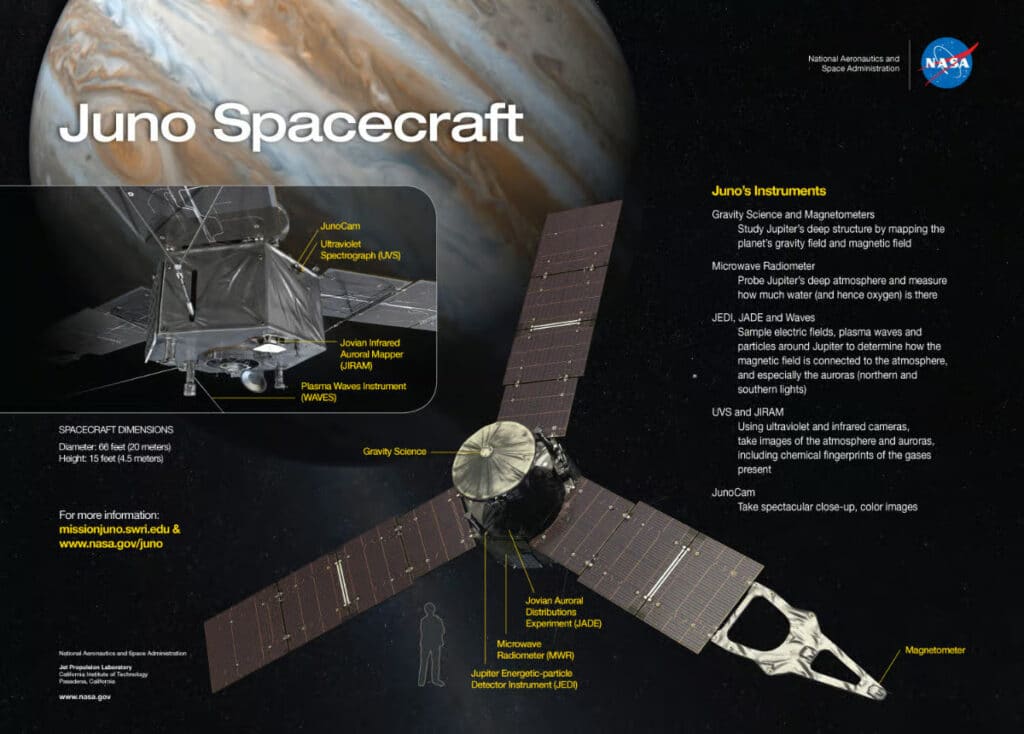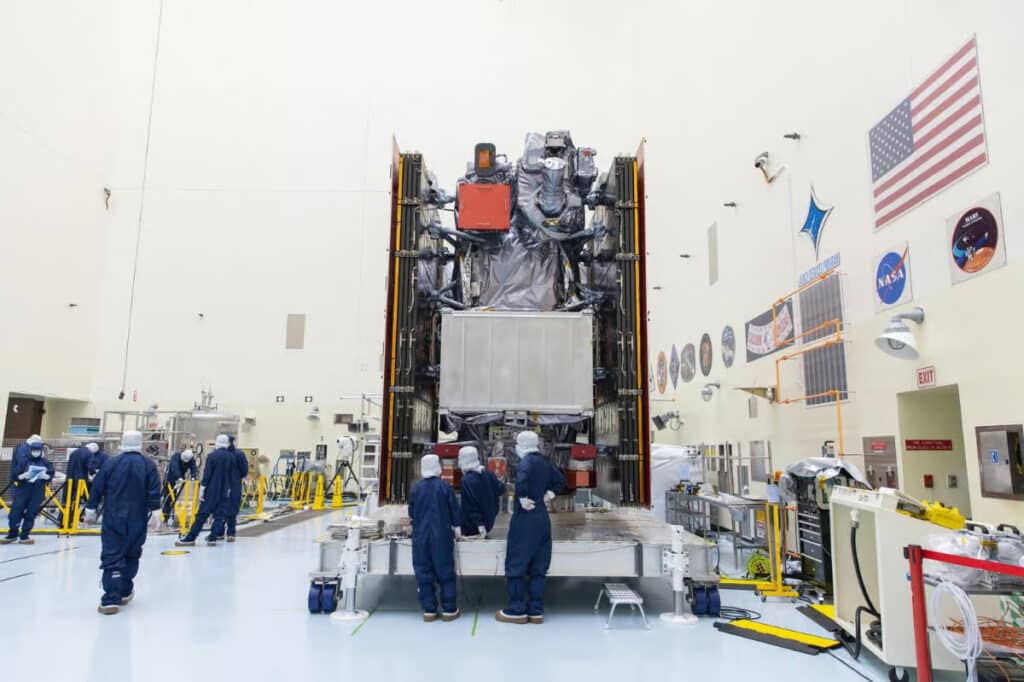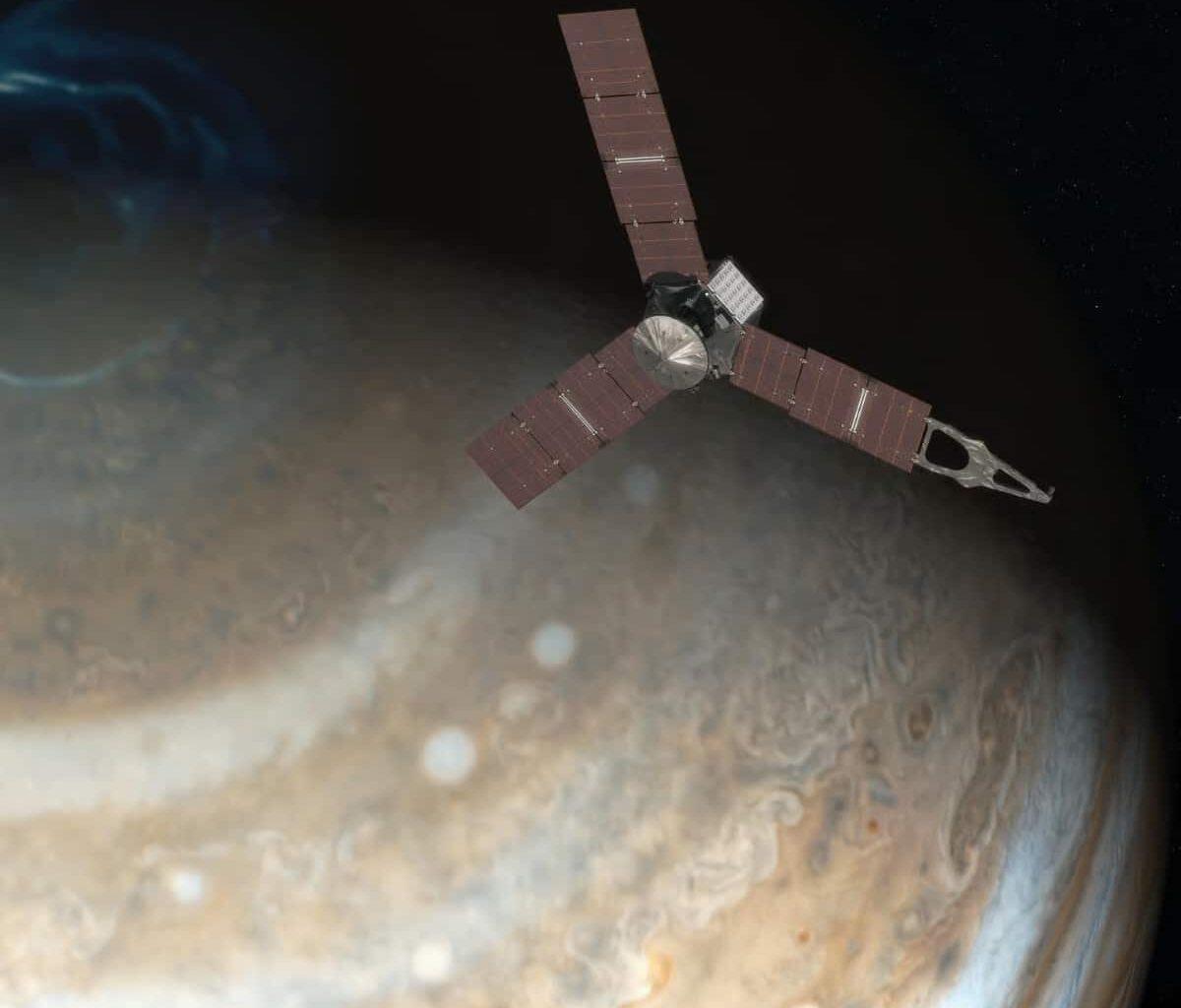NASA is currently in low-power mode as the U.S. government shutdown drags on. While the agency is still keeping its most critical missions running, others—especially those caught in a bad timing trap—aren’t so lucky.
September 30, 2025. That’s when Juno, the deep-space probe that’s been circling Jupiter since 2016, is officially due to retire. But there’s a problem: October 1 marks the start of the federal shutdown, effectively freezing all but the most essential operations.
With most government agencies on pause, NASA has shut down the majority of its activities, keeping only the staff necessary to ensure astronaut safety aboard the International Space Station or to maintain satellites orbiting Earth.
An invaluable scientific journey
Juno isn’t just another piece of equipment out there—it’s been a cornerstone of NASA’s recent space exploration. Since its 2011 launch, it’s delivered groundbreaking data on Jupiter, its atmosphere, and its many moons.
Originally scheduled to wrap up long ago, Juno’s mission has been extended multiple times due to its success. Its current extension runs until the end of September, but now it finds itself in limbo. The shutdown has left NASA unable to issue new instructions on what comes next.

Juno, an essential probe in the study of the Jovian system. ©NASA
And you can’t just leave a spacecraft unattended. Even on autopilot, Juno needs ground staff to monitor its health and collect its data. That means people—and people mean paychecks.
Juno’s work hasn’t just been prolific; it’s been profoundly useful. The data it has beamed back has helped scientists better understand our solar system, while also laying the groundwork for missions to come—especially Europa Clipper, which launched last year and is expected to reach Jupiter’s moon by 2030.
Countdown to government reboot
Many in the research community would prefer to keep Juno running until then, ensuring there’s no gap in scientific coverage. But as Space.com points out, NASA doesn’t have the final say. Only missions classified as “exceptional” are allowed to continue during a government shutdown.

Europa Clipper in the clean room before its launch at Cape Canaveral. ©NASA
As of now, Juno doesn’t make that shortlist. And with former President Trump repeatedly downplaying the importance of NASA’s scientific endeavors, the fear is growing: Juno’s story might end not because it failed, but because the system around it did.
In a world where data is gold and space is the final frontier, Juno deserves better than a quiet fade into the dark.

Hugo Ruher
Science journalist
Science journalist, I am above all passionate about space, which is what inspired me to pursue this specialty. Drawn to science in general, I also closely follow news related to the environment and technology.
After earning a degree from Sciences Po Toulouse, I began working in radio, covering general news, international issues, and even local problems. At the same time, I started a career as a science journalist, first focusing on space and later on environmental topics.
Making complex information simple
A large part of my work involves reading scientific studies published in various journals, texts that are often complex or downright indigestible! My goal is to extract information from them and make it accessible to a broader, non-expert audience. This ambition is what truly drives me.
This path has led me to write for teen magazines like Cosinus, highly specialized publications such as Industrie & Technologies, as well as more mainstream outlets like Numerama or Le Monde.
In addition to that, I also sometimes write about topics that are a bit more “lightweight.” The digital world, ranging from the use of social media to AI, and even the culture around video games—are areas that I find fascinating and worth covering with a serious approach.

